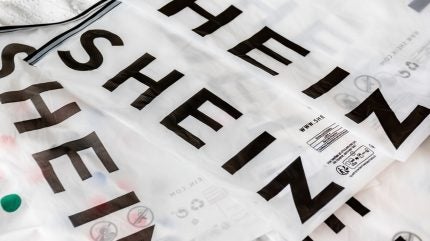
Shein’s 2024 Global Circularity Study indicates a significant shift in consumer behaviour with a notable preference for clothing longevity over trends.
The company said the study offers a deeper understanding of how its customers perceive and partake in circular fashion practices.
The study, conducted in partnership with Alchemer, surveyed more than 3,500 Shein customers aged between 18 and 45. Data was taken across six countries namely the US, the UK, France, Germany, Italy, and Poland.
Adoption of long-term mindset
More than 40% of the respondents admitted to wearing their Shein purchases more than 30 times, while nearly 20% wear them 50 times or more. This suggests a move away from fleeting fashion trends, as comfort and fit take precedence over style in determining the shelf life of garments.
The study notes that income levels can influence the frequency of wear with 21% of median to lower-income shoppers wearing items more than 50 times, compared to just 16% among higher-income customers. This trend points to a greater emphasis on durability and extended use among lower-income consumers.
Growing trends in circular fashion habits
Shein’s study reveals the rise on circular fashion habits with 51% of the customers expressing a preference for digital resale platforms rather than traditional thrift stores. The act of donating used clothing (62%) and sharing garments with friends and family (57%) are popular among Shein patrons, reflecting a community-centric approach to extending clothing lifespan.

US Tariffs are shifting - will you react or anticipate?
Don’t let policy changes catch you off guard. Stay proactive with real-time data and expert analysis.
By GlobalDataDigital transactions for secondhand fashion are also gaining popularity. Around half of the survey participants engaged in online buying or selling of pre-owned apparel, according to the study. While motivations vary across regions due to cultural differences, there is a clear interest in circular fashion practices.
Practicality in the secondhand market
The secondhand market’s allure is not only practical but also environmentally conscious, with sustainability being a driving factor for 20-30% of those involved in buying and selling used clothes, suggests the research.
Some of the initiatives introduced by the company to promote eco-friendly fashion choices include Shein Exchange, a peer-to-peer resale platform in the US, UK, France and Germany.
The brand, which is headquartered in Singapore, also initiated pilot programmes with partners in the US, France, Mexico, Japan, Germany and the UK, where they collect used clothing from customers and donated to local charities.
The company said the Shein Exchange offered a positive experience reported by 78% of its users. The platform’s potential for driving circular fashion activities is evident, as 78% of surveyed customers expressed interest in using it if available in their country.
Driving participation for circular fashion activities
Despite the growing enthusiasm, the study observed a gap in participation in circular fashion activities due to a lack of awareness or perceived inconvenience. Approximately 30% of those not engaging in circular fashion activities cite either disinterest or uncertainty about how to get involved.
Insights from data and analytics firm GlobalData projected the apparel market share of Shein to climb by 0.24 percentage points, reaching 1.53% in 2024. This growth comes amid the brand facing intense scrutiny over its labour and environmental practices.



